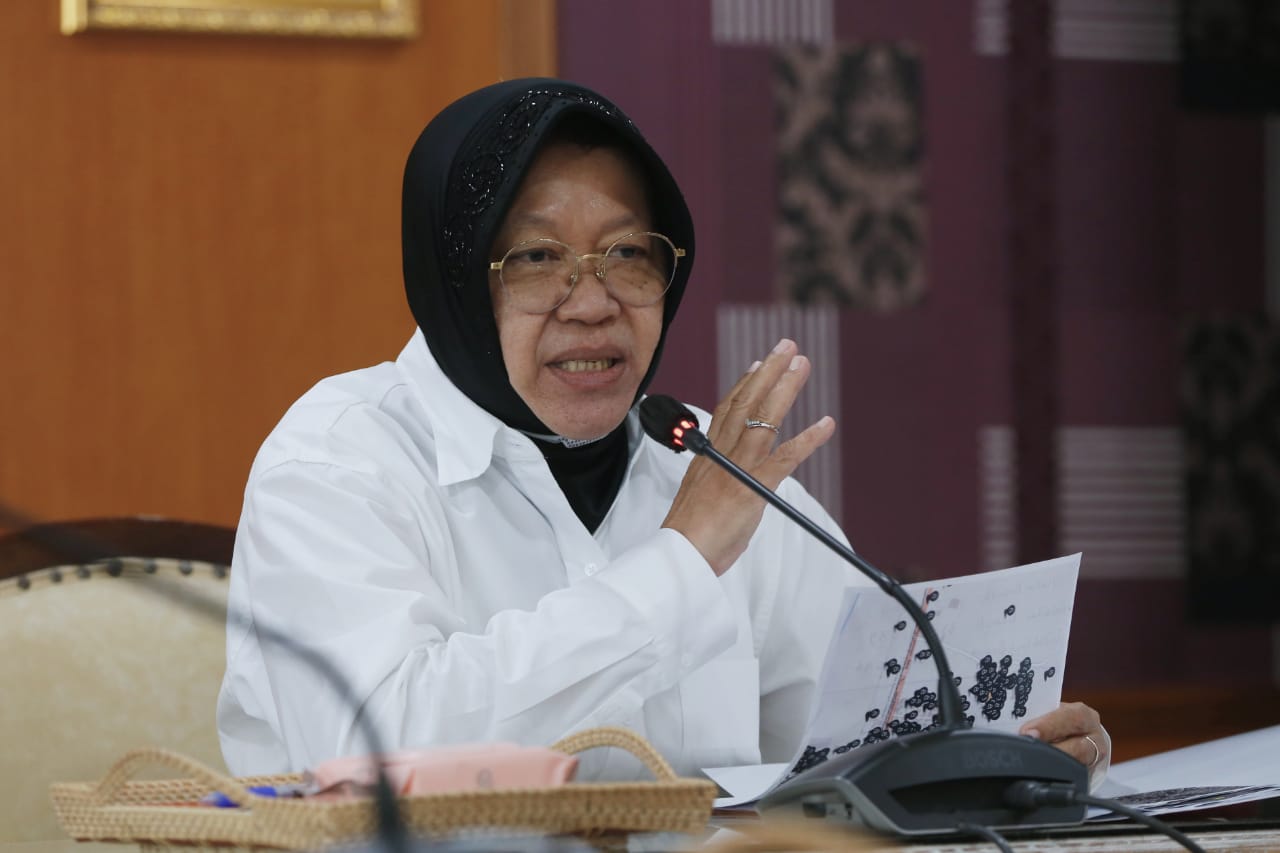Social Minister Explains 6 Methods in Updating Poverty Data

Writer :
Koesworo Setiawan
Translator :
Nia Annisa
JAKARTA (18 November 2021) - The Ministry of Social Affairs is continuously and systematically updating the Social Welfare Integrated Data (DTKS). The Ministry of Social Affairs also matches the Population Identification Number (NIK) data registered in the Directorate General of Population and Civil Registration (Dukcapil) of the Ministry of Home Affairs to improve the accuracy of target beneficiaries.
Social Minister Tri Rismaharini stated that there are six methods used by the Ministry of Social Affairs in updating data. Namely, from regional proposals, through the "propose" and "refute" features on the cekbansos.go.id application, from disaster data, results from field checks based on media news, verification results from Pejuang Muda (Youth Fighters), and results from geo-tagging spatial data from satellite imagery.
Data from the regions it contains the dynamics of population data related to residents who died, changed addresses or segments moving. If they are not registered by the regional government, the community has the opportunity to register themselves through the "propose" and "refute" features.
Meanwhile, disaster could increase the number of poor people. So, they need to be proposed in the poverty data. From media reports, the Ministry of Social Affairs carried out field verification. If proven to meet the requirements, they can be included in the beneficiary data.
“We also use spatial data geo-tagging technology from satellite imagery. With this technology, it is possible to know the condition of the house. In areas where satellite imagery is inadequate, we are assisted by Pejuang Muda who are also doing the tagging by visiting and taking pictures of houses," said the the Minister at a press conference at the Ministry of Social Affairs Office (19/11).
The Minister emphasized that with spatial data geo-tagging technology from satellite imagery, the front view of the beneficiaries' house can be photographed. If the house area is up to 100 m2, it means that they are affluent. "The application of this geo-tagging technology is currently only running in urban areas," said the Minister.
From the geo-tagging results, the Minister explained that there are 31,624 State Civil Apparatus (ASN) data. "From these data, there are 28,965 active ASNs. They are spread over 511 cities/regencies in 34 provinces,” said the Minister.
She emphasized that the data was the result of consignment with the State Civil Service Agency (BKN). “There are 311,122 data with various professions such as lecturers, ASN, medical personnel, and so on. They live on the main streets of the city," she said.
The Ministry of Social Affairs will coordinate and submit the results of the geo-tagging to the regional government.
For data updates from regional proposals, the Ministry of Social Affairs has received 10,910,564 million data. "After we checked and matched it with the NIK from the Population Administration (Adminduk) data, we returned it to the regions. As a result, we have received back as many as 33,851,390. The regional governments throughout Indonesia stated that 1,450,960 data was not feasible," she said.
Then from the "propose" and "refute" features, data obtained as much as 67,647. The Minister of Social Affairs stated that the incoming data was also verified so that not all of them were immediately declared eligible. "The data that are appropriate and acceptable are 6,102 data and 1,147 rejected data," said the Minister.
On this occasion, the Minister of Social Affairs emphasized several times that the data update process was carried out by the Ministry of Social Affairs on an ongoing basis. On the other hand, the task of updating data is not only the domain of the Ministry of Social Affairs.
"Based on Law No. 13/2011 on Poverty Handling, updating data is under the authority of the regional governments. Therefore, like the aforementioned geo-tagging results, we also return it to the regions," said the Minister.
On this occasion, the Minister also ensured that the Ministry of Social Affairs was cooperative and open. In the process of updating data under the authority of the Ministry of Social Affairs, coordination is always carried out with various related parties. This includes audit institutions such as the Financial Audit Agency (BPK), the Financial and Development Supervisory Board (BPKP), Bank Indonesia, and the Financial Services Authority (OJK).
The Ministry of Social Affairs also involves law enforcers such as the Corruption Eradication Commission (KPK) and the National Police Criminal Investigation Department.
Public Relations Bureau
Ministry of Social Affairs
Share :
 English
English
 Bahasa
Bahasa
